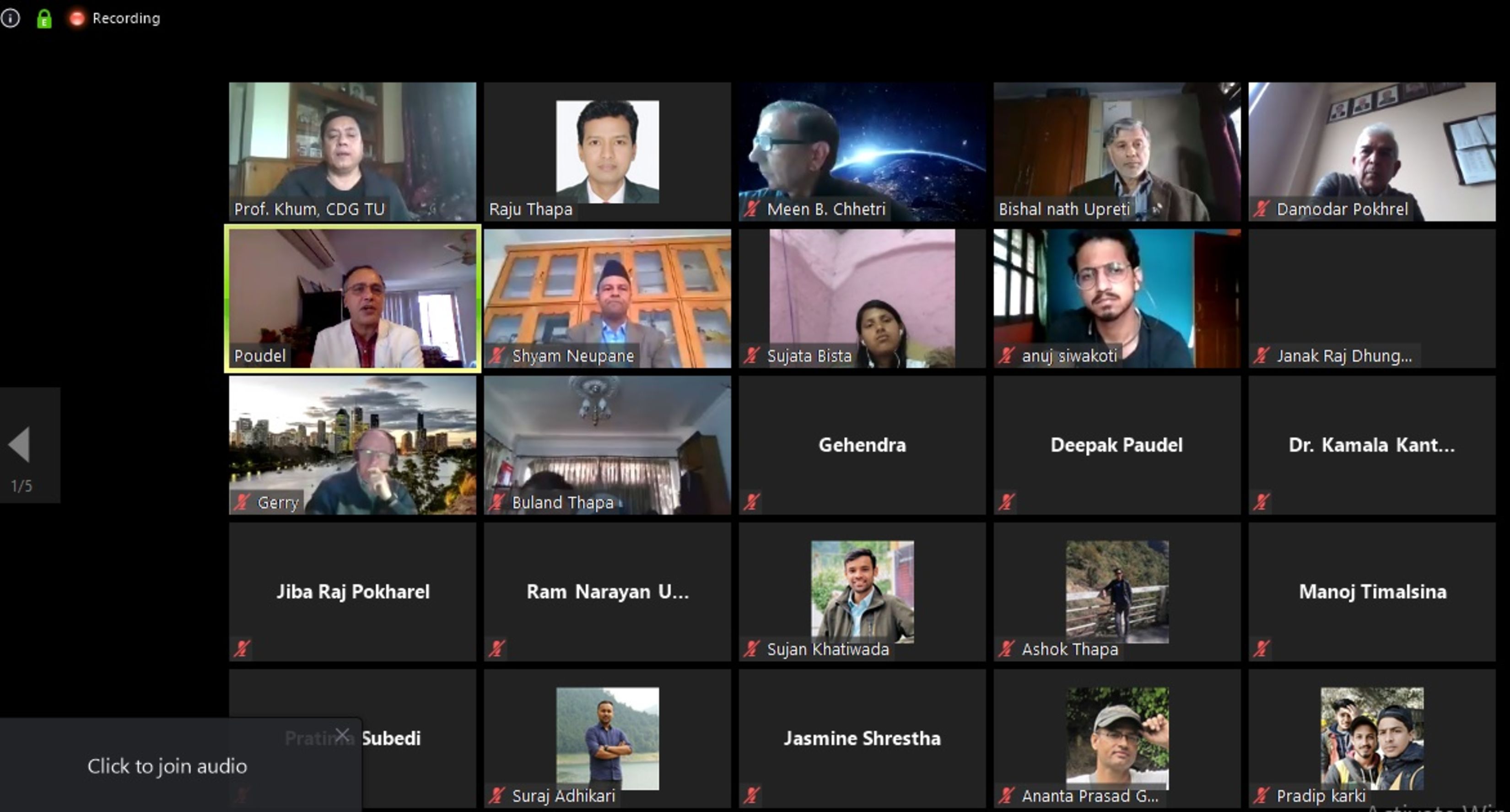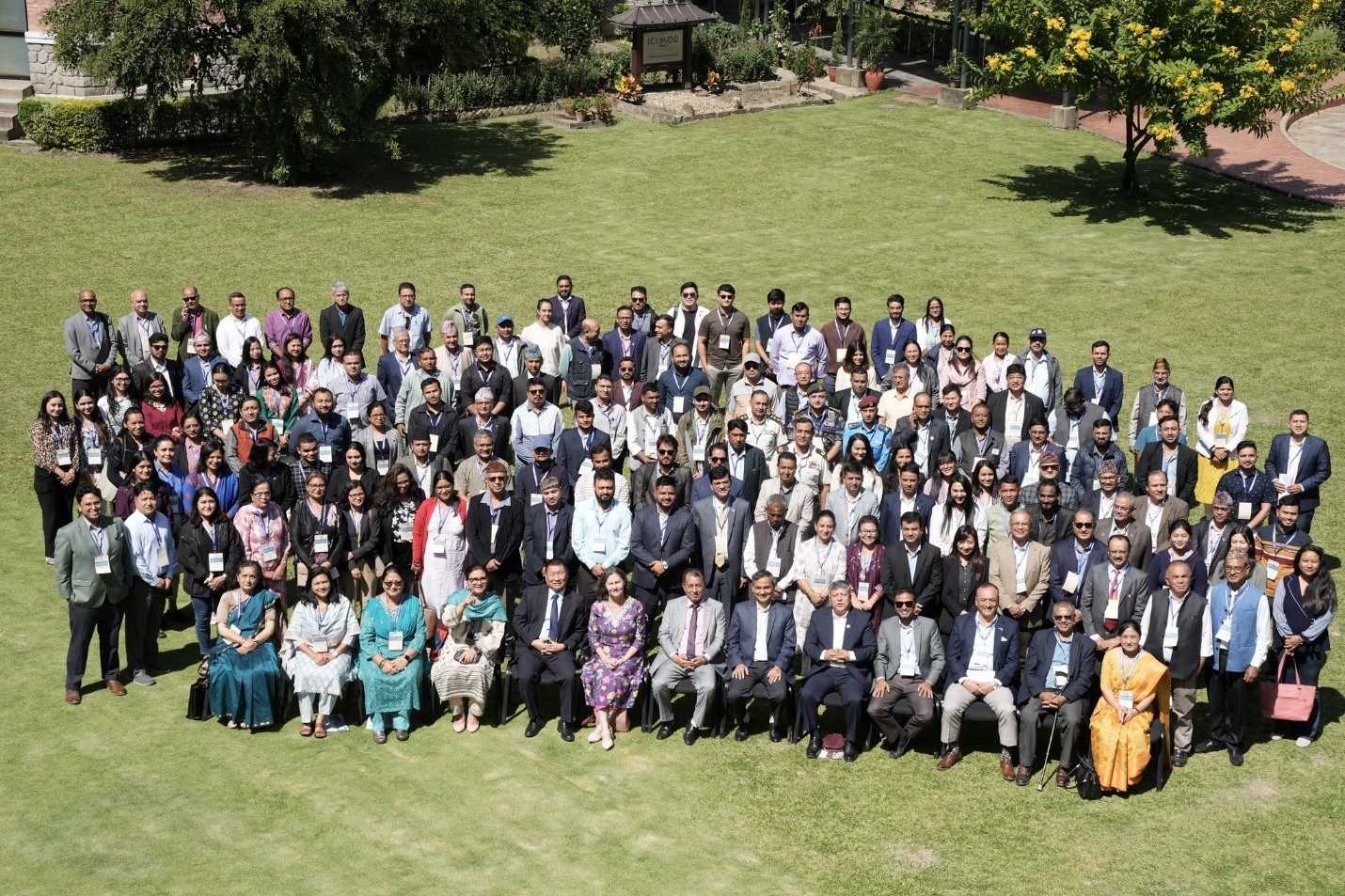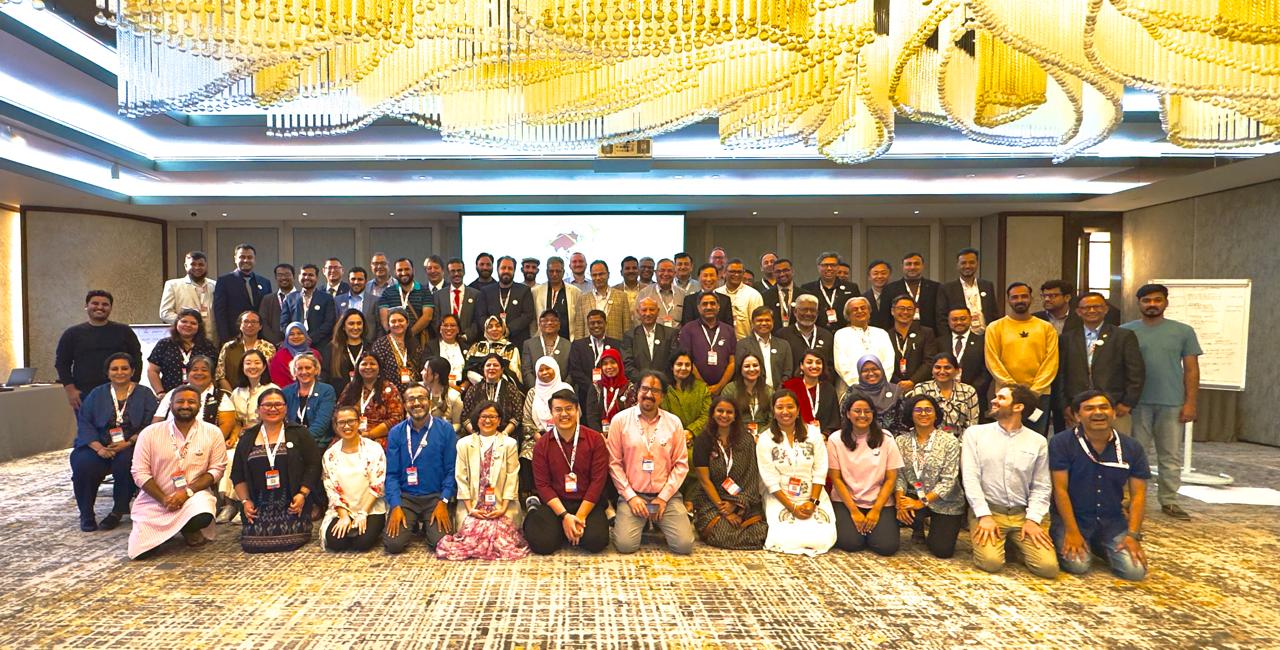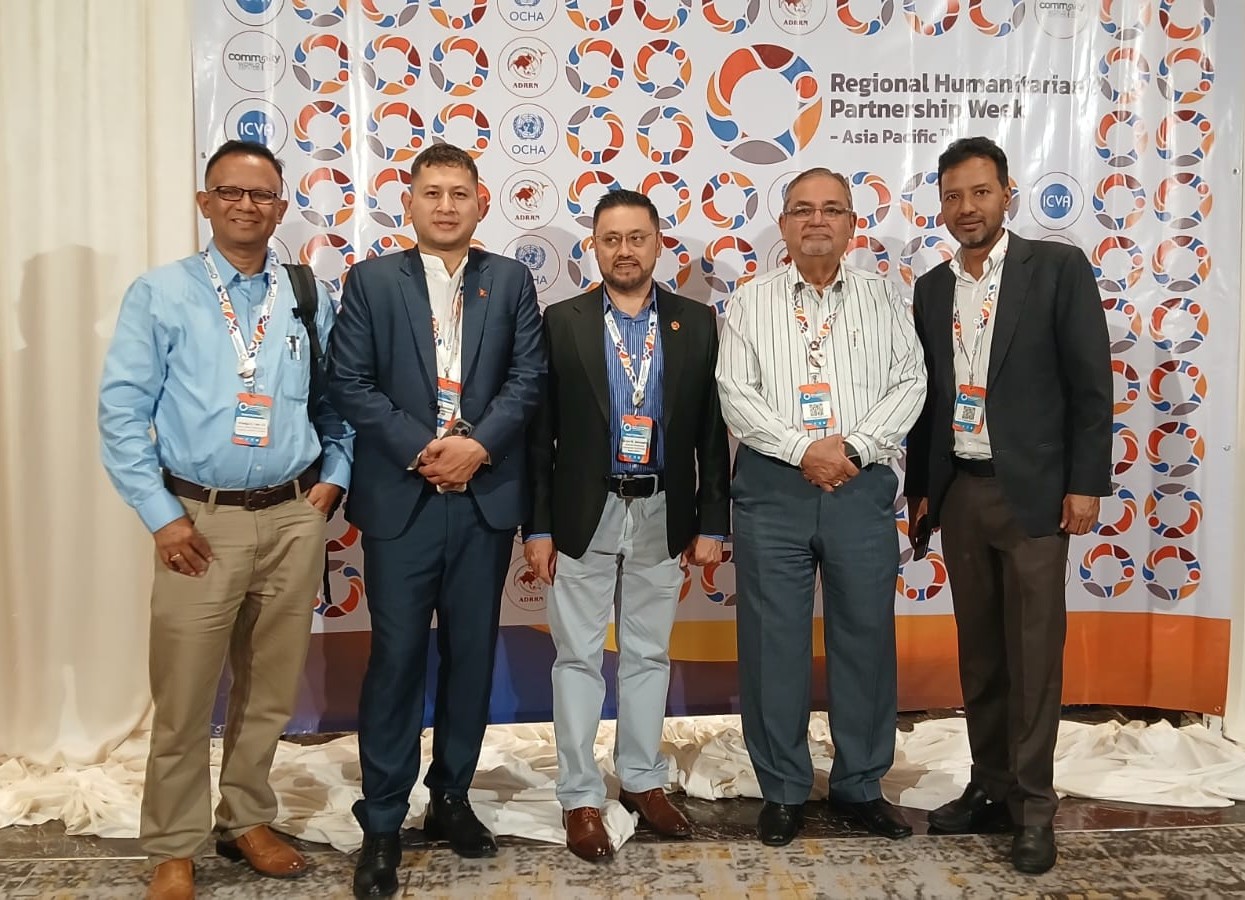Covid-19 Pandemic: Experience Sharing from Australia & Nepal and Way Forward

Discussion Note
Covid-19 Pandemic: Experience Sharing from Australia & Nepal and Way Forward
Background
A talk program entitled "Covid-19 Pandemic: Experience Sharing from Australia & Nepal and Way Forward" was organized by Nepal Centre for Disaster Management (NCDM) in collaboration with DPNet-Nepal, Nepal Academy of Science and Technology (NAST) and Department of Geology, TU on 5th May 2020. There were two speakers from Australia and two from Nepal. Altogether 117 including Member of Parliament and representatives from various organizations participated in an online program organized in a zoom platform. The program started with the welcome remarks from Prof. Dr. Bishal Nath Upreti, Chairperson of NCDM. He welcomed all participants and shared that it’s good to have such a talk program and information sharing between the experts of the two countries and way forward and explore what may be the situation in the coming days. He informed that Dr. Bikash Devkota, Spokesperson and Chief of Health Coordination Division at Ministry of Health and Population Nepal was not able to participate and deliver his presentation as he had to attend to urgent meetings on COVID-19 issues.
Major Highlights
Prof. Dr. Damodar Prasad Pokhrel, Former Vice-Chancellor of National Academy of Medical Sciences (NAMS), Chairman of Surgical Fraternities and Vice-Chairperson NCDM delivered his presentation starting with the background of COVID-19 (introduction, sign, and symptoms of the disease), advice for pregnant women and immunosuppressed people. He also shared that this pandemic should be well incorporated in the national security framework. In addition to this, he also shared that microbiologists from California took data from European countries and suggested that if we do lockdown for a long time then there will be a serious economic impact, and therefore lockdown should be lifted up slowly, but social/physical distancing must be maintained.
The takeaway message shared in the presentation of Prof. Pokhrel included social distancing, use of masks, disposable tissue paper to be used for coughing and sneezing, and frequent handwashing with soap.
Dr, Bharat Raj Paudel from Brisbane, Australia specialized in community development, disaster, and media management compared the media perspective in Nepal and Australia in dealing with COVID-19. He shared that Australia has shown a good example of crisis management stating that the Australian Government has built trust among the public. He shared that the recent survey by the private agency said that Australians trust toward media was 31% until 2018 and now the trust has increased to 51%. Government media are the most trusted media in Australia. As disseminated by media, the Australian Government focused on enforcing legal provisions, and the violator of the instruction is fined on the spot. Even a minister had to resign on the moral ground after he violated the instructions regarding the COVID-19.
Similarly, referring to the information shared by the International Federation of Journalists (IFJ), he shared that the media in Nepal have a job crisis as private media are losing money from advertisements. So they are downsizing their staff. They do not have PPEs to provide to staff. There are many reported scandals and corruption news during this time and the Government is not giving due attention to the crisis situation. All these things are impacting the media, so they are not fully complying with this crisis. Furthermore, he shared that IFJ has reported that the current problems in Nepal are not going to be solved soon because the media are more focused on covering the current political news rather than news on COVID-19.
He also said that in comparison Australian media has coped better, Government has supported media and they have a good culture of putting people's voices. Staff are provided PPE and advised to work from home. In the end he shared that women politicians/leaders and journalists have been very efficient in dealing with the crisis.
Prof. Dr. Gerry FitzGerald, Emeritus Professor of Public Health at QUT and a former Chief Health Officer for Queensland in his presentation shared the Australian experience about the COVID-19 pandemic. He included the information about the origin of the coronavirus, Australia’s response from January to early May, the key strategies focusing on the test, trace, and tracking of cases, isolation and quarantine, and measures for reducing the risk and vulnerability. He also shared the international trend along with the population incidence, the real incidence, and the mortality, border control in Australia, the experience about the Coronavirus infection in cruise ships. Furthermore, he also shared the health system issues, COVID-19 and children, mask-wearing by public, information about vaccines, treatments, and domestic elimination. The key lessons shared in the presentation included rapid early response and initiating quarantine, building resilient health systems with a secured supply chain, surge capability, stockpiles, etc.
Dr. Meen B. Poudyal Chhetri from NCDM delivered the presentation of Dr. Bikash Devktota, Spokesperson and Chief of Health Coordination Division at Ministry of Health and Population Nepal. The presentation included the institutional structure of Nepal for COVID-19 response, the high-level Coordination Committee led by the Deputy Prime Minister and Minister of Defense Hon. Ishwor Pokhrel and 11 members including MoHA, MoHP, etc. The incident command system led by Secretary of MoHP, taking a multi-sectoral approach for COVID-19 crisis management. He also shared the situation report, mitigation measures, supportive measures, ongoing activities, risk communication, best practices, collaboration and partnership, bottlenecks, and challenges.
At the end of the presentation Dr. Chhetri found some positive aspect, major issues related to COVID-19 in Nepal, and presented some recommendations to the Government of Nepal which are as following:
Positive Aspect of COVID-19 in Nepal--
The spread of COVID-19 in Nepal has been found comparatively slow in terms of the geographical and population size of the country. This may be because of the following reasons—
- Peoples’ Immunity
- Resistance
- Food Habit
- Culture of greeting by Namaste instead of handshaking
Major Issues Related to COVID-19 in Nepal
- Reliability and quality of the testing kit
- A small number of tests
- Open border with India from where people with infection may enter
- Disguised and unidentified patients due to the remote, rural and hilly parts of the country
- Showing no symptom by some positive cases (asymptomatic cases)
- People traveling from one place to another for food, shelter, and safety
- Use of spray without knowing its impact
- Lack of vision and program of the government towards the influx of Nepalese people who have gone abroad for work, travel, education etc.
- Inadequate medical equipment
- Inadequate medical personnel
- Loss in revenue collection
- Negative impact on tourism, industry, real state, and another service sector
- A big loss in remittance
- Long term economic impact/threat or economic recession
- Difficult to speculate how long the COVID-19 will remain.
Recommendations
- Physical distancing is very important together with the social distancing
- Test, Test, and Test
- Private hospitals too must be made responsible to treat the COVID-19 patients
- The government must take proactive action to manage the settlement and assimilation of Nepalese people coming back home from foreign countries
- Agriculture should be given priority
Major Concerns Raised in the above Presentations:
- The Middle East and high-temperature countries are also suffering from COVID-19, so how can heat reduce or kill the coronavirus?
- What could be the reason behind effective COVID-19 response by women leaders?
- Why government media are more credible in Australia than private media?
- Why private hospitals in Nepal are reluctant in treating COVID-19 patients?
- A significant number of Nepalese are out of the country? But the Government is a bit reluctant to allow them to come to Nepal? Many Australians were out of the country but they are allowed to travel even after enforcing the travel restrictions. How is it managed?
- The monsoon is approaching, and the flood and landslides are a recurring phenomenon in Nepal. During this period, besides lockdown, what could be the effective measures considering the monsoon disaster in relation to COVID-19.
Major Response
- Coronavirus is living in the lungs and throat of humans, nose, sinuses, thus the virus is not directly exposed to the heat. If it comes in direct contact of sunlight or heat for some time the fat molecule can be destroyed.
- Our culture has given a respected role to women. In western countries, women enjoy social glamour and 30-50 aged women leader is appreciated by the public. May be due to their nature of less involved in the conflict, they are better managers. There are many women journalists working effectively in media reporting.
- Government media are supported financially by the Government of Australia, whereas the private media are facing COVID-19 impact as they are losing advertisement. Government media are running news in clean feed, so they don’t have any problem dealing with the crisis.
- Travelers coming from abroad are compelled to stay in quarantine for two weeks, according to the quarantine act. The monitoring mechanism is in place to monitor the people staying in quarantines and they are kept in a hotel.
- The monsoon hazards and COVID-19 are very challenging. There is a combination of risk. The risk of spreading the virus could be quite high. Social distancing and hygiene should be maintained along with the availability of PPE for responders.
Closing:
Dr. Sunil Babu Shrestha, Vice-Chancellor of NAST delivered concluding remarks. He thanked organizers and shared that the program has provided an opportunity to compare the impact of the pandemic in two countries. He shared that, as a citizen of the most vulnerable countries (according to WHO), up to now, we are fortunate to have a limited number of infected patients (below 100), due to government’s effective lockdown measures, information sharing, etc. NAST has launched some strategic activities targeting COVID-19. He also shared that engagement of scientists and technicians will create synergy in dealing with COVID-19. He said “We will be better prepared for the future crisis through the lesson learned from this pandemic. Every cloud has a silver lining and has showcased the need to enhance research and evidence-based reporting in Nepal” In the end he expressed his request to Government of Nepal to allocate more funds for research and capacity building and creating a conducive environment to conduct research.











